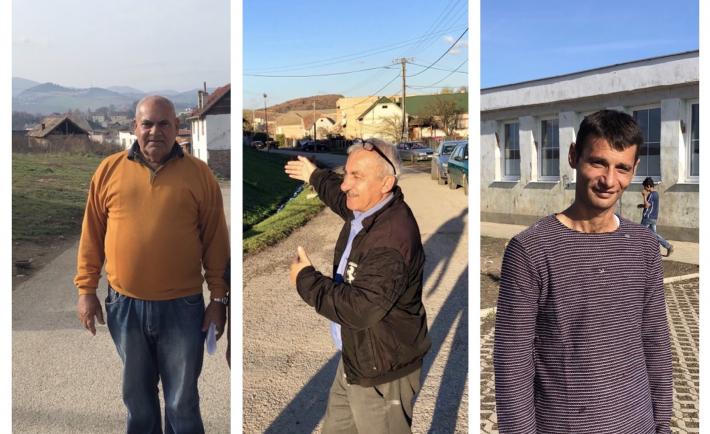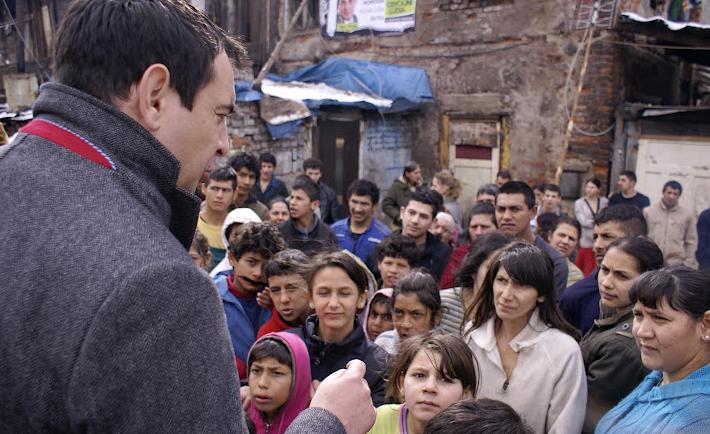The Roma, whose numbers are estimated at more than 10 million, make up Europe’s largest minority group, and are also the largest socially and economically-marginalized population. Across the continent, Roma face systemic discrimination in employment, education, healthcare and housing. This leads to poor quality of life, lower life spans, higher school delinquency rates and higher unemployment rates in comparison to their fellow non-Roma citizens. According to official EU statistics, anywhere from 33 to 58 percent of Roma children will experience segregation in public schools and, on average, only 12 percent of Roma between the ages of 18 and 24 will have completed high school.
One Person Can Make a Difference: Success Stories of Roma Advocacy in Slovakia
Roma integrate in one Slovak town—and everyone benefits
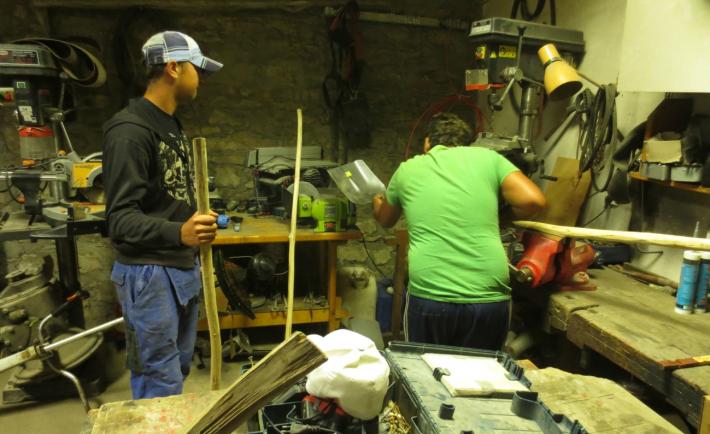
Two Roma employed by the municipal enterprise in Spissky Hrhov, Slovakia, show that the “whole community” approach to democracy and human rights begins at the local level
Like other small towns in this mountainous region of Slovakia, Spissky Hrhov faced tremendous uncertainty in the aftermath of the democratic revolution of 1989 and Slovak independence in 1993. People rejoiced in the overthrow of communism. But with a moribund economic base, no evident means to attract investment, and ethnic divisions, Spissky Hrhov seemed consigned to economic subsistence and social conflict.
For Spissky Hrhov’s sizable number of Roma residents, the situation was particularly dire.
Slovakia: Democracy from Below, Not from on High
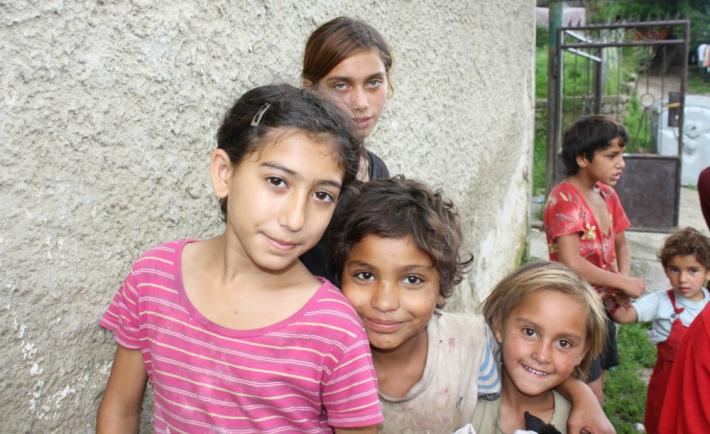
Recent anti-Roma speech throughout Europe, including in Slovakia, negatively impacts Roma children like these, photographed by Nadezhda Mouzykina in a segregated Slovak settlement.
Editor's Note: Stanislav Daniel, NDI Roma Political Participation Program Alumnus and Coordinator of Romani Early Years Network, contributed to this piece.
Slovakia’ ruling SMER party convened its annual congress in December. Although a social democratic party now in power for a number of years, the congress had the unfortunate political trappings of a populist, right-wing gathering. Instead of pronouncing on poverty and inequality and other issues important to all citizens, the party chose instead to scapegoat Slovakia’s most vulnerable constituency—the Roma—as public support for a far-right political alternative grows.
Who Are the Roma? A Personal Reflection
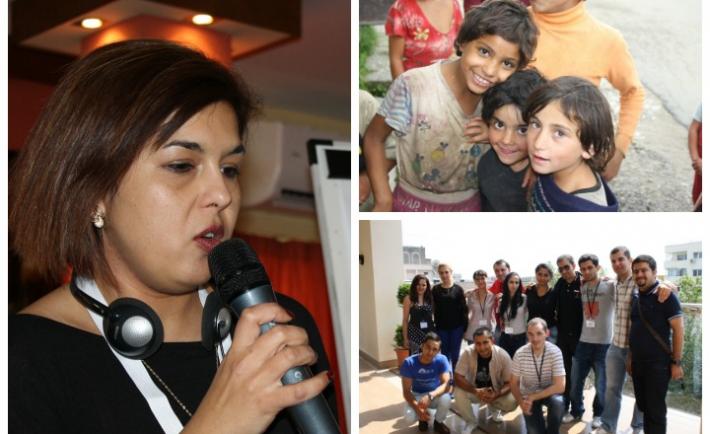
Left: a Slovak Roma activist at an NDI advocacy training. Top Right: Roma Children in a segregated Slovak settlement. Bottom Right: Youth activists at an NDI training on media and Information Communications Technologies (ICTs) in advocacy.
April 8 is a special day. It’s a day when more than 10 million Romani citizens worldwide celebrate their rich culture, traditions, and heritage. And this year, it marks exactly 45 years since the First World Romani Congress, which took place in Orpington, England. On April 8, 1971, 23 representatives of nine countries and numerous observers formed the International Roma Union - an organization to represent Roma policy and interests worldwide - and adopted an official Roma flag and the Roma anthem, Djelem, Djelem.
But who are the Roma?
Partnering with Roma Activists to Evaluate Political Mainstreaming in Slovakia
In two days the world will celebrate International Roma Day, which highlights the issues facing Romani people around the world.
Over the last decade, with funding from the National Endowment for Democracy (NED), NDI has supported Roma political candidates, civic activists and elected officials as they seek to increase their participation in civic and political life.

